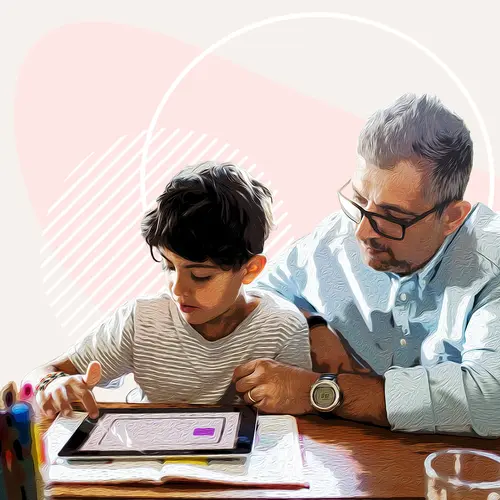If your child has ADHD, you may wonder if your parenting skills have something to do with it. You’re not alone: Many people believe that bad parenting causes the condition.
Don’t blame yourself. ADHD is a brain disorder. While the exact cause isn’t clear, scientists know that many things may play a role, including many that are beyond a parent’s control, like genes and low birth weight.
Can a chaotic home environment make symptoms worse? Sure, just as an orderly and calm one can make them better. But rest assured that television, video games, too much or too little discipline, and other parts of your home life did not cause your child’s ADHD.
Why Parents Get Blamed
Parenting criticism is common. In one poll, six in 10 moms of young children (up to age 5) said they have been criticized for their parenting skills. The most common targets: discipline, diet, and sleep. So, it’s easy for parents to feel vulnerable to blame when their child is diagnosed with ADHD.
That may be one reason that people buy into the myth that poor parenting causes ADHD, but there are others. Among them: Every so often, a study will report a tentative link between parenting and ADHD.
Usually, the links in those studies aren’t significant. Once in a while, though, a study connects symptoms of the disorder with certain parenting skills, such as inconsistent discipline. Even when the scientists point out that their research has weaknesses -- for instance, it relied on parents to accurately report their own behavior -- the finding makes headlines.
Tips to Handle Critics
When you have a high-needs child, you may face outside pressure to change your parenting ways. You may get unwanted advice from friends and family. You may feel the sting of their judgments. These are some ways to handle it all:
Complain with caution. Remember that sharing your frustrations with others opens you up to “constructive” criticism. Choose your audience wisely.
Shut it down. Responding with, “I’m happy with the way we’re handling things,” should end it.
Protect your child from negative comments. If you and your child are invited to a home or event where criticism is likely, just don’t go. Not an option? Be sure you don’t discuss any ADHD challenges while your child can hear you.
Talk science. If you want to educate your critics, you can share that there is strong, published evidence that changes in certain brain regions are at the root of ADHD.
How Parents Can Help Kids Thrive
Your parenting didn’t cause ADHD, but it can make a difference in how your child gets through daily life. Ask your child’s care team or check with ADHD organizations about any parenting skills training you can get. These programs can help parents:
- Learn to set clear, consistent expectations and limits for their child
- Find the best way to discipline them
- Help kids learn from their mistakes.
Another way to help your child thrive is to have structure at home. Kids with ADHD have an easier time staying focused and organized this way. A few ways to create structure:
- Set simple, consistent rituals for mealtime, schoolwork, downtime, and bedtime.
- Use timers for homework, getting ready, and even transition times.
- Give your child a quiet place to relax (apart from their bedroom or time-out spot).
- Keep your home as organized as possible.
Finally, remember that you’re a model of behavior for your child. Do your best to stay calm, focused, and positive. This will help both of you respond well to the challenges of living with ADHD.

